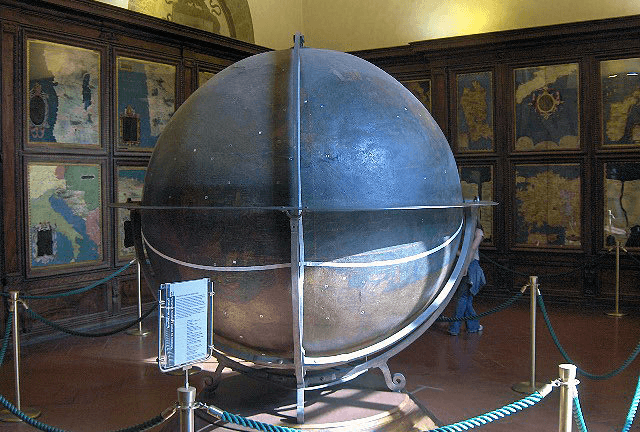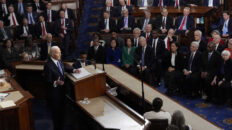In the days following the gift-giving holidays, many millions of people stand in judgement over the quality of the gifts they gave and the gifts they receive. Did they arrive on time? Did the quality hold up? Did the reality match the advertising hype? The Internet ads an extra wrinkle. Anyone dissatisfied can post blistering attacks on any merchant and the product in questions. Anyone can vote up or vote down.
The down votes are what make the news. The Wall Street Journal tells the story of Scott Mitchell of Connecticut, who purchased from Best Buy and Playstation 3 for his two sons ages 10 and 14.The company let him know via an email that the goods didn’t arrive. He was furious and wouldn’t stop posting diatribes against the company. Eventually, the suits got involved and sent him his full bundle of goods at a low price plus a $200 gift certificate.
“While I can’t say I’m happy, I wound up being satisfied,” Mr. Mitchell told the Journal.
The case was cited as one of many such cases. Consumer demand was so intense that Best Buy got behind. The company didn’t have the inventory it needed to fill all requests. Cyber Monday overloaded the staff and they couldn’t respond fast enough. Any business that hears the story thinks: nice problem to have. Inventory decisions like this require daily clairvoyance.
What’s more important here is what this anecdote indicates about the social order. In this setting above, who is in control? Mr. Mitchell is just one lone guy with one problem with a company that serves untold millions. But he had a voice and his voice was heard. The company scrambled to please him.
Justice was served, and not because he was part of a big pack of people going to voting booths once every four years. There were no hearings, committees, testimonies, debates, complex systems of legislation and signings, judges and juries, regulations and legal rights. He was served because he was a consumer. One man with a credit card beat the system.
The institution that allows this great thing to happen is known as consumer sovereignty and it is an intrinsic part of the market. The preferences and rights of one individual prevailed even though he was not in the majority, even though he never registered for any system in a political apparatus, even though he had no lobbying firm or friends in high places. He complained and the giant corporate monolith bowed to his wishes. And they did so for self interested reasons. It’s bad for business to have dissatisfied customers. So the the corporate execs fell to their knees in supplication.
This is a good system. Who set it up? No one. There was no votes, no constitutions, no committee hearings, no lobbying. It emerged spontaneously from the decisions of self interested parties. The company exists to make a profit by finding ways to get goods to people who want them. Mr. Mitchell was among those who decided on his own volition to trade with the profit-seeking company. That trading relationship is one of billions and billions that go on every day, all day, all year. Put them all together and you have what is known as the market economy.
Philosophers from the ancient world to the present have tried to imagine how to set up a society in which every individual matters, a society without exploitation, a society without violence, a society with peace, justice, and prosperity. They have usually imagined that this world would have to emerge from the political process. That is where their speculations and plans usually begin. They were and are wrong. The society that does these things is right before our eyes and found within the framework of our own choices, actions, and trades with others.
We are often told about the evils of corporate power and the grim nightmare of the market in which we are all swallowed up by the forces of materialism and consumerism. Where is there evidence of any of this in the sphere governed by voluntary exchange?
In the market economy, the buyer is the decision maker. He or she determines what gets produced, how much, and directs the pattern of change. The supposedly powerful fat cats of the corporate world are daily submitting to the wishes of the little guy with a computer and a credit card. Any company in a market can be shut down in a matter of weeks if the consumers switch loyalties. This happens every day.
Nothing like this system exists in our dealings with the state. For years now, masses of people have been screaming about the indignities imposed upon us by the TSA. The TSA responds with a propaganda blitz designed to make us believe that they are strip searching us electronically for our own good. The institution doesn’t comply with all our wishes much less the wishes of one person. Instead it sets out to change our thinking, trying to make our mental habits conform to those with the power.
In other words, the TSA operates on the opposite principle of the free market. In the market, we are in charge and the producers slavishly attempt to find out what we think and try to conform their operations to our point of view. In government, we are told that we are the ones that must change. We must submit. We must comply. We must go along no matter what. We can choose to be grumpy about it or happy about it, but, in either case, there is no choice. We must obey. And the institutions of government never really go away.
And so it is with every government agency at all levels. The little guy doesn’t matter. There is nothing like the consumer/producer relationship that we see in operation in every instant on the market economy. Instead, the government takes our money by force and spends it as it wishes. If we don’t like the system, we are invited to slog our way to designated spots every four years and choose among a slate of drones who want to be our designated leaders.
Government vs. the market: which system is better? Granted that neither system provides utopia. The real issue is: which system is better capable of self correcting in our favor? The market does this every day. There is a ceaseless struggle going on globally with the goal of winning us over as consumers. The market is always saying: “how can I help you?” The government is always saying: “help us or else.”
Looking at the choice here, it seems rather obvious that the market – as a particular application of the principles of choice and free association – is the best approach to organizing society. No one designed it. It is controlled by us in the very exercise of our free will to It gives power to the people. The statist approach can only lead to less satisfaction, less mutual benefit, less control, and ultimately the very nightmare that we all want to avoid.
Think of all that that market contributed to your holidays and all it will do for you in the year ahead. As a form of social organization, nothing is more deferential to your needs and wishes.














Add comment